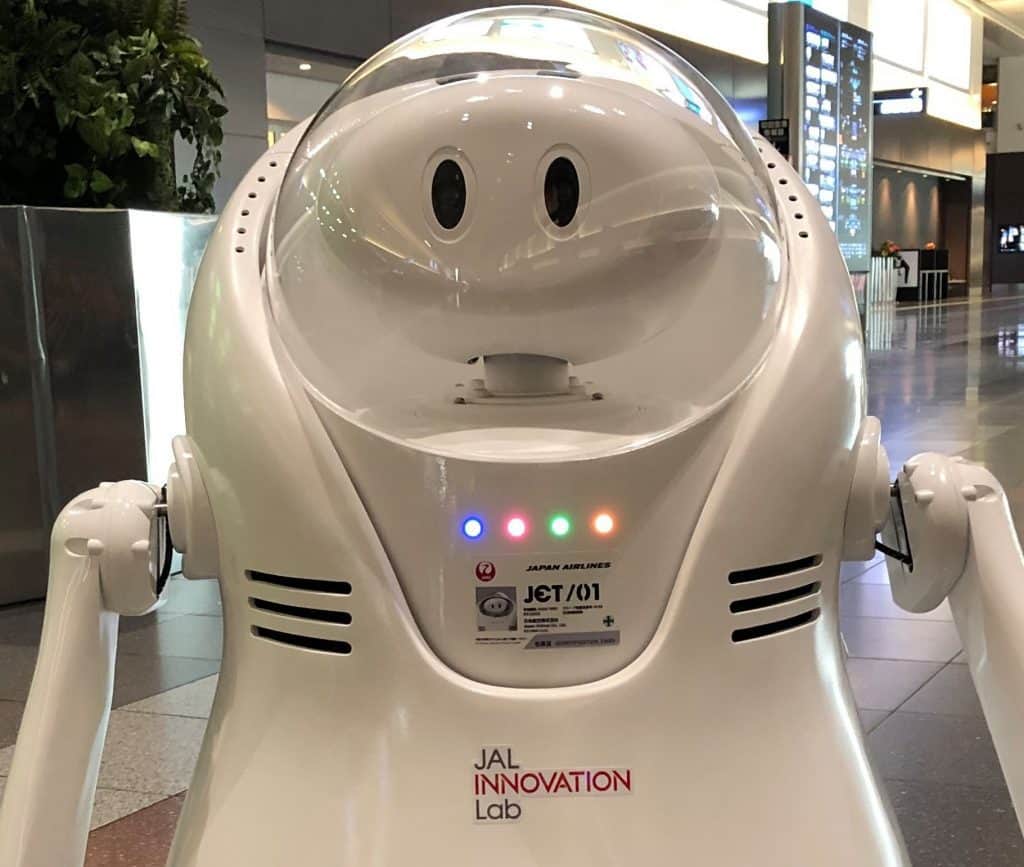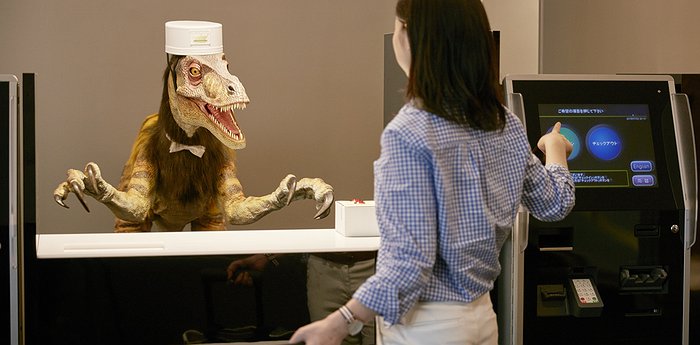Travel and science fiction
Can robots replace cabin crews?
By Sofia Scott
Artificial intelligence is everywhere. In the customer service chats of any online store, in chess games, on Netflix or Spotify, and even in the medical diagnosis of various pathologies.
But can artificial intelligence, and robots, replace flight crews? Will our trips be 100% assisted by machines and no more by the friendly hostesses who help us in the air?
It is a complicated question, but first …
What is “artificial intelligence”?
Artificial intelligence is a branch of computing focused on creating machines intelligent enough to perform tasks at the same level – or better – than humans. The initial framework for this field emerged in 1950, when mathematician Alan Turing asked “Can machines think?” in his article “Computer machinery and intelligence”.
Although movies and popular culture portray artificial intelligence almost always surpassing human intelligence to the point where it becomes a threat to our existence (Stanley Kubrick’s movie “2001” is a classic example), in real life artificial intelligence does not pose any danger (at least, not until now).
The great achievement of artificial intelligence is to be able to do calculations infinitely faster than the human brain (just like a calculator), but to recognize texts, images and sounds, and relate them to real life, it has to be very well trained – by humans, of course.
Artificial intelligence includes two “layers” of intelligence: machine learning and deep learning. The first is the most superficial and is the basis of most AI applications. Deep learning, on the other hand, means that AI is much more autonomous and capable of learning “on its own”. This is the type of artificial intelligence used in complex applications, such as health diagnostics, for example.
But our subject here is travel …
Where is artificial intelligence used in the travel industry today?
First, on online customer service. If you speak on Facebook Messenger with an airline or through the chat on their website, it is very likely that the first line of the service is made by a “bot”, an application to answer a certain repertoire of customer questions. If the bot is of quality, the client may even have the feeling that he is talking to a human, but most of the time, we already notice that it is a machine answering questions from a list prepared in advance (sometimes the bot’s programming is quite poor…)
In the field of AI in the travel industry, we cannot forget about robots, which usually attract a lot of attention.
Five years ago, the Hilton hotels introduced Connie, a concierge-robot created from Watson, the artificial intelligence developed by IBM. Connie gave basic information to clients, which meant a more agile and efficient reception service at the hotel.
But no country is more akin to robots than Japan, and of course there are no shortage of examples of robots managing hotels and certain tasks also in airports, all based on artificial intelligence.
From the hotel with robot-dinosaurs at check-in to JET, Japan Airlines’ assistant to help pandemic passengers at Haneda Airport, in Japan there is everything – even criticism of the overuse of AI.
Could a flight crew be replaced by robots and artificial intelligence?
Well, it is precisely from Japan that a word of moderation comes about this overwhelming technology. Japanese neuroscientist Ken Mogi, who in addition to being a writer and celebrity in this field, is also a researcher at the Sony Computer Science Laboratories and a professor at the Tokyo Institute of Technology, is committed to moderation.
Yes, artificial intelligence can perfectly take care of repetitive and data-related tasks on a flight, the scientist opines in a recent interview. However, only the human crew can interpret the emotions of the passengers and their consequent needs. This is so because robots and AIs need to learn from various interactions (training) – and not just from a single experience. Humans, however, are capable of interacting, understanding, and learning in a single moment. One experience is enough for us to draw lessons for a lifetime. Robots, no.
“Humans and robots can work together to meet the demands and needs of each passenger and thus enrich the experience during the flight,” he explains. The goal, in the end, is to serve the passenger with “omotenashi,” the Japanese word for “warm hospitality.”
And you? Do you think robots will replace the human crew on flights? Or is this too much of science fiction?
See you next week in one more Onboard Journal. If you liked this diary, share it with friends.
* The Onboard Journal has chronicles published weekly.*
** Check our previous chronicle here **
*** About the author: Sofia Scott is an expert in technology, business and travel. ***


